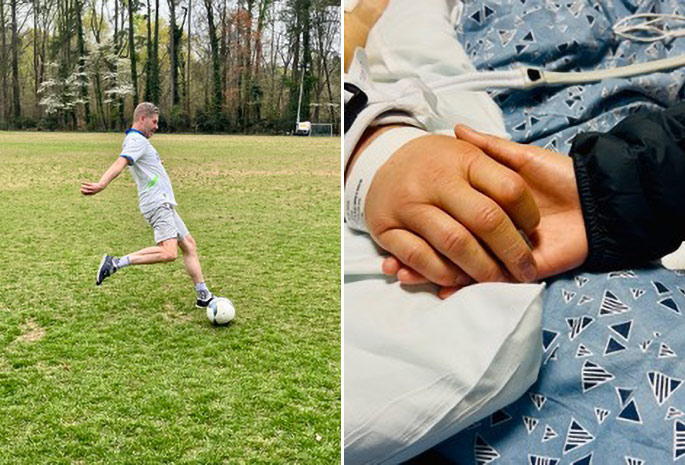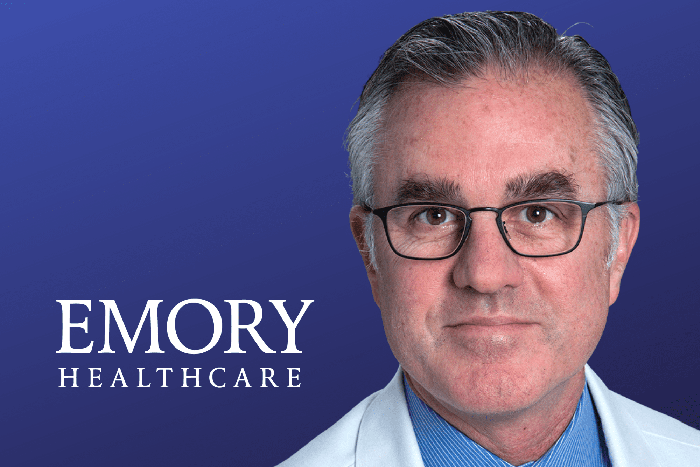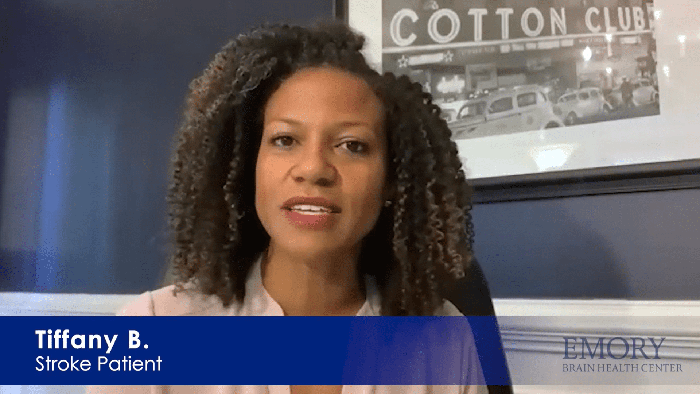After two life-changing experiences, Jeff and his wife Kristin of Alpharetta, Georgia call themselves “the luckiest unluckiest people alive.”
Jeff, 54, has always been active. However, while playing soccer in September 2023, he shattered his collarbone. That injury led to a series of setbacks, including infections, five surgical revisions and months of antibiotics.
Nearly a year later, he was well enough to be active again and joined his friends for a long-overdue Saturday morning pick-up soccer game. However, it wasn’t the celebratory experience he expected.
“While playing, I noticed a change in my vision. I thought my contact lens had fallen out, but my friends said it looked like it still was in my eye,” Jeff says. He sat down for a moment to let his vision settle. Then he started seeing a bright orange light.
Worried he might be experiencing a retinal detachment, Jeff decided to head home. “About five minutes into my drive, the left side of my body became numb and shaky. I pulled over, called 911 and gave the operator Kristin’s number so she could be looped into the call,” Jeff explained.
“I wasn’t sure where I was, so my wife tracked me on her phone and directed the EMTs to my location.”
The EMTs initially thought Jeff was having a panic attack because all his vital signs were normal. To be certain, Kristin decided to drive him to the emergency department at Emory Johns Creek Hospital.




